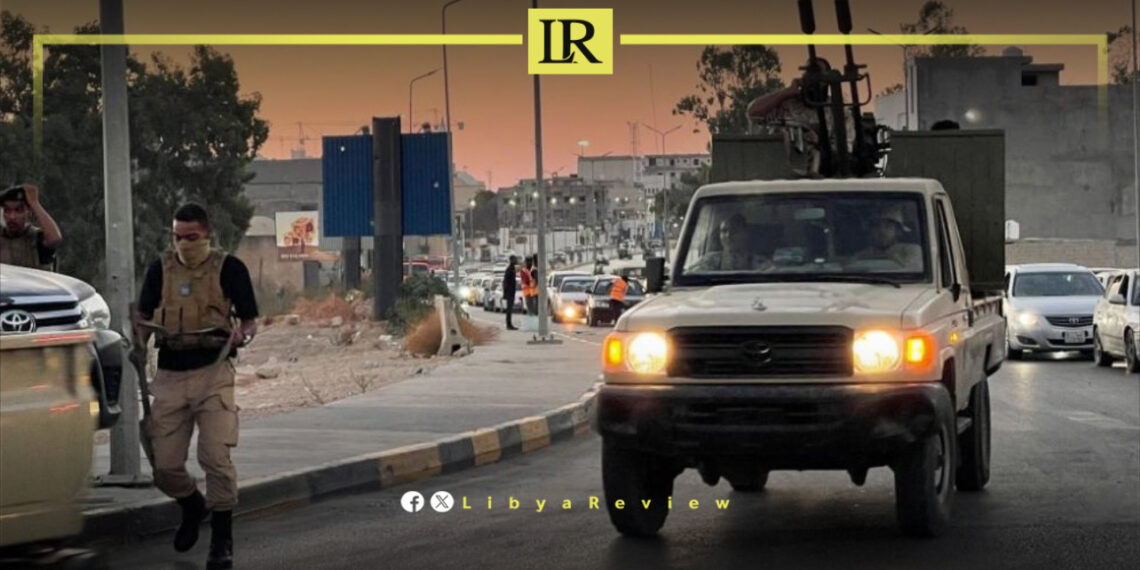The Tourist District, located west of Libya’s capital, Tripoli, experienced renewed security tensions on Thursday. Sporadic gunfire was reported, marking another wave of unrest just two days after clashes erupted in the area.
According to sources speaking to Fawasel Media, military vehicles were seen stationed near the Gharan Bridge, in the vicinity of the Tourist District, on Thursday evening.
This escalation follows a directive issued on Wednesday by Libya’s Attorney General, Al-Siddiq Al-Sour, ordering the evacuation of the Al-Maghrib Al-Arabi village—known locally as “Al-Riqata”—in Tripoli. The directive called for the removal of all individuals and assets not affiliated with the Development for Tourism and Real Estate Investments Company. Authorities were tasked with securing the area and returning it to its rightful owner.
The Attorney General’s decision came in response to violent clashes that occurred late Wednesday night in the village, which tragically resulted in the death of one civilian.
Additionally, Libya’s Minister of Interior in the Government of National Unity, Imad Trabelsi, instructed various security units, including the Stability Support Apparatus, the Directorate Support Force, the Tripoli Security Directorate, and the Special Operations Force, to deploy patrols to the Tourist District. The aim was to restore security and maintain order using all legally available measures.
The clashes earlier this week between the First Support Force and the General Security Apparatus in the Tourist District and Al-Riqata escalated to the use of heavy weaponry. Intervention by assigned security forces ultimately quelled the fighting.
Libya has been in chaos since a NATO-backed uprising toppled longtime leader Muammar Gaddafi in 2011. The county has for years been split between rival administrations.
Libya’s economy, heavily reliant on oil, has suffered due to the ongoing conflict. The instability has led to fluctuations in oil production and prices, impacting the global oil market and Libya’s economy.
The conflict has led to a significant humanitarian crisis in Libya, with thousands of people killed, and many more displaced. Migrants and refugees using Libya as a transit point to Europe have also faced dire conditions.
The planned elections for December 2021 were delayed due to disagreements over election laws and the eligibility of certain candidates. This delay has raised concerns about the feasibility of a peaceful political transition.
Despite the ceasefire, security remains a significant concern with sporadic fighting and the presence of mercenaries and foreign fighters. The unification of the military and the removal of foreign forces are crucial challenges.


